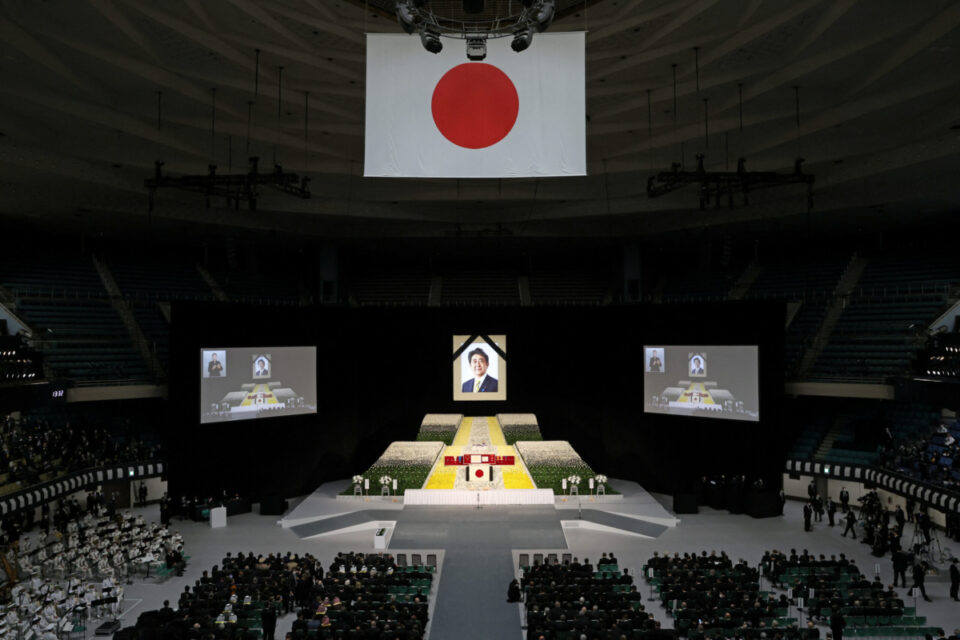ISTANBUL, Sept 27 — Japan on Tuesday held a state funeral to honour its former Prime Minister Shinzo Abe who was assassinated in July during an election campaign, Anadolu Agency (AA) reported.
The decision to hold the state funeral also triggered protests around the event venue set up in a park near the Nippon Budokan Hall in Tokyo, where over 700 foreign dignitaries and locals are paying tributes to the former leader of the ruling Liberal Democratic Party, known for stabilising the Japanese political arena.
The ceremony began at around 2.13pm local time (0513GMT) after Abe’s cremated remains arrived at the venue and were handed over to Prime Minister Fumio Kishida by the slain premier’s widow Akie Abe.
Japan’s Crown Prince Akishino is representing the country’s imperial family at the state funeral.
A small documentary showcasing Abe’s life and work as Japan’s chief executive was played after the country’s national anthem was played at the venue.
“Japan is back … Future of Japan depends on what we do now,” are some of the quotes from Abe’s speeches that were played during the ceremony.
Kishida defended holding the event.
“Mr Abe, you were a person who should have lived much, much longer as a compass for Japan’s and the world’s future,” Kishida told the ceremony.
“We can no longer see you in action … that is heartbreaking and regrettable,” Kishida added.
Tokyo is on high alert with around 20,000 police personnel guarding the venue.
United States Vice-President Kamala Harris, Indian Prime Minister Narendra Modi, Turkiye’s Foreign Minister Mevlut Cavusoglu and International Olympic Committee President Thomas Bach are among the foreign guests attending the funeral.
Abe is the longest-serving prime minister of Japan who was assassinated on July 8 while delivering an election campaign speech in western Nara city.
It is the first time in 55 years that Japan is honouring any of its leaders with a state funeral.
State funerals are reserved only for members of Japan’s imperial family.
Since World War II, only one politician was given this honour in 1967. He was Yoshida Shigeru who served Japan as a prime minister for seven years in two terms — from 1946 to 1954 — and negotiated the end of the US occupation and Japan’s regaining independence.
— Bernama





